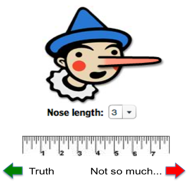 NBC News.com has purported that they may have the reason why it’s harder for younger generations to mind their P’s and Q’s when interacting with their elders.
NBC News.com has purported that they may have the reason why it’s harder for younger generations to mind their P’s and Q’s when interacting with their elders.
New research has revealed that younger people can’t read emotions on wrinkled faces. There might be a scientific reason afterall of why there is such a divide between the younger and older generations.
The findings revealed that facial expressions of emotion such as anger, are perceived differently when seen on an older face (76-83 years old) in comparison to a younger face (19-21 years of age). The expressions are seen less clearly due to facial wrinkling.
65 college students were screened in this study and asked to rate the intensity of the emotion not just the emotion itself. The results were that younger people were least likely to recognize sadness in older faces and were most likely to recognize anger.
”In the case of the older expresser, the anger is seen as mixed with other emotions. Clearly it makes a difference whether you think someone is just angry or someone is both angry and sad.” says lead author Dr. Ursula Hess, a professor of psychology at Humboldt-University in Berlin, Germany.
There are many other factors that should be taken into account for future research such as if the amount of regular interaction between groups makes a substantial difference in the ability to recognize facial expression of emotions in spite of wrinkles on the face.
In related news Times Colonist has some positive news in the realm of facial recognition.
Children with autism who have trouble recognizing and labeling facial expressions of emotion often find it difficult to discern if a person is happy, sad, or even frightened. The solution that was proposed was to go digital.
What does that mean? Well, a new computer program can help children with autism understand social cues of emotions via facial expressions.
The goal of the project, undertaken by UVic’s Centre for Autism Research and Technology, is to use pictures of familiar figures such as loved ones and friends and put them into a database that can be accessed by the child. This will be an individualized therapy session that a child can do anywhere.
What are your thoughts on these facial expression recognition studies/developments?
If you have personal insight that relates to one of these topics, we welcome you to share it with our readers !
 According to a “Science of Honesty” study presented at the American Psychological Association’s 120th Annual Convention, lying less is linked to better health.
According to a “Science of Honesty” study presented at the American Psychological Association’s 120th Annual Convention, lying less is linked to better health.